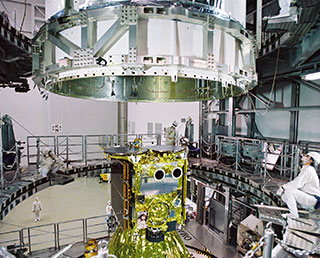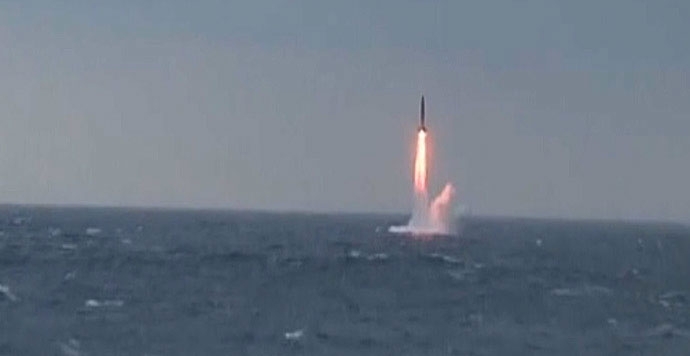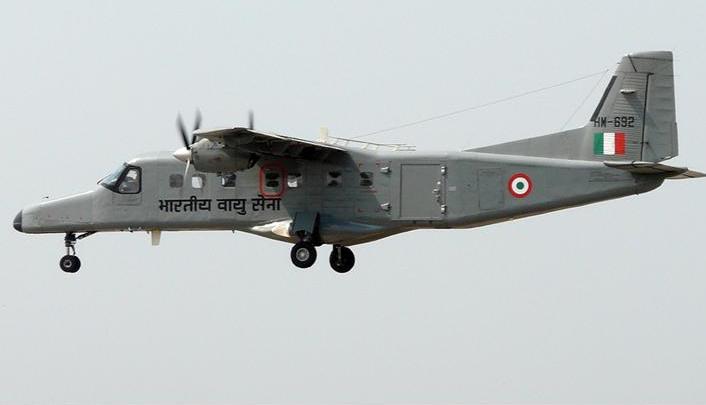
A Jaxa photo
TOKYO (AFP): Bad weather will delay the launch of a Japanese space probe on a six-year mission to mine a distant asteroid, just weeks after a European spacecraft's historic landing on a comet captivated the world.
Hayabusa2 had been set to blast off aboard Japan's main H-IIA rocket from Tanegashima Space Centre in southern Japan on Sunday.
But thick cloud expected over the weekend means scientists need to postpone the launch, a statement by the Japan Aerospace Exploration Agency (JAXA) said.
"The new launch day will be announced as soon as it is determined," it added.
The USD 260 million project is sending a probe towards the unpoetically-named 1999 JU3 asteroid in deep space.
It will blast a crater in the asteroid to collect virgin materials unexposed to millennia of solar wind and radiation, in the hope of answering some fundamental questions about life and the universe.
"The asteroid is carbonaceous and we may find organic matter and water, the stuff of life," Hitoshi Kuninaka, project leader at the Japan Aerospace Exploration Agency (JAXA), said in an interview posted on the agency's website.
Analysing the extra-terrestrial materials could help shed light on the birth of the solar system 4.6 billion years ago and offer clues about what gave rise to life on Earth, he said.
Hayabusa2, about the size of a domestic refrigerator, is expected to reach the asteroid in mid-2018 and will spend around 18 months studying the surface.
It will also drop tiny MINERVA-II rover robots as well as a French-German landing package named Mobile Asteroid Surface Scout (MASCOT) for surface observation.
In a galactic first, Hayabusa2 will drop an "impactor" that will explode above the asteroid's surface and fire a metal bullet into the crust at a speed of 7,200 kilometres an hour -- six times the speed of sound on Earth.
The bullet is expected to create a small crater that will enable the probe to collect material from the asteroid.
"The impactor is made fully with Japanese technologies that are so advanced you would think they are out of this world," said Kuninaka.
The Hayabusa2 mission will blast off just weeks after the European Space Agency succeeded in making mankind's first-ever landing on a comet this month.
 Previous Article
Previous Article Next Article
Next Article













The Indian Air Force, in its flight trials evaluation report submitted before the Defence Ministry l..
view articleAn insight into the Medium Multi-Role Combat Aircraft competition...
view articleSky enthusiasts can now spot the International Space Station (ISS) commanded by Indian-American astr..
view article